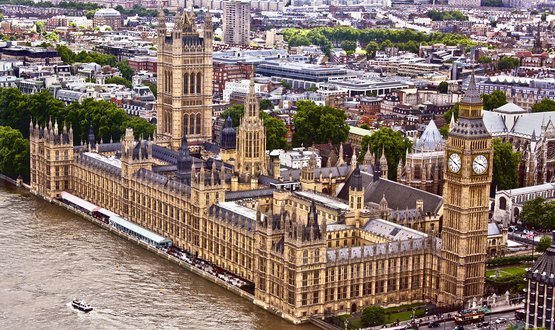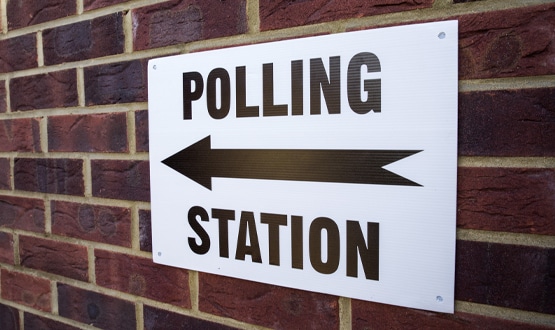Shock general election result knocks health ministers off seats
- 9 June 2017

The United Kingdom has woken up to a shock hung parliament result which has cut the Conservative party of its parliamentary majority. While the political bun fight is still on-going, Theresa May seeks to run a minority government with support from the Democratic Unionist Party. But what does this all mean for NHS health IT?
It’s still early days but we know that several high profile health ministers have lost their seats.
Nicola Blackwood, parliamentary under-secretary of State for Public Health and Innovation, lost her Oxford West and Abingdon seat to Liberal Democrat Layla Moran by 816 votes.
David Mowat, pharmacy minister, was knocked out of his Warrington South seat by Labour’s Faisal Rashid, who won with a majority of 2,549.
However, despite being widely vilified in the press for his role in the junior doctors’ strike, Jeremy Hunt retained his Surrey South West seat with a comfortable 55.7% of the votes. In second place was Louise Irvine of the National Health Action party, who won 20% of the vote.
At time of writing, it’s still uncertain if Hunt will be kept on as health secretary.
However, one MP that was touted to be his replacement is out of the running. Former health minister, Ben Gummer, who was rumoured to be the next health secretary in the reshuffle, lost his seat in Ipswich to Labour’s Sandy Martin by 813 votes.
All this uncertainty does not bode well for NHS England’s flagship global digital exemplar (GDE) programme. The 16 acute GDE trusts that were due to receive a share of a £100 million funding pot last November, but are still waiting on the funds to advance their digital plans.
While confusion is the order of the day, at least the end of campaigning signals the end of purdah, so prepare for a deluge of reports, comment and initiatives that have been held back over the surprise election call.
Mike Thompson, chief executive of the Association of the British Pharmaceutical Industry, said on the General election: “This political uncertainty is as damaging for the pharmaceutical industry as it is for other businesses”.
“Having triggered Article 50, there are crucially important decisions that the UK Government and the European Union need to resolve within timelines that were already very challenging.”
“We need politicians in the UK and across Europe to be pragmatic, and ensure that they put the interests of patients and public health first. In all scenarios, we will need continued cooperation with Europe on all aspects of medicines regulation.”
The Patients Association said in a statement that result will not make the potential NHS funding crisis and challenges of Brexit disappear.
“Without a change in direction by the Government, there is now no prospect of us avoiding a major crisis in the NHS, on top of the existing one in social care.”
“This crisis will not hold off while Westminster politics sorts itself out into a more workable shape or adapts to the new political landscape – it will come whether our politicians are ready for it or not.”
This is a developing story.
How Twitter saw the General Election:
Nicola Blackwood
Health minister #NicolaBlackwood is latest #Tory frontbencher to lose https://t.co/goF9SEs6h1 #Scalps #GE2017 pic.twitter.com/xc5mYBywSd
— Buzz (@Lost_Tribe) June 9, 2017
It's a real shame to say goodbye to #NicolaBlackwood who was an excellent MP and achieved a great deal for this region. Uncertain times.
— Simon Bassett (@BassettsBriefs) June 9, 2017
Ben Gummer
Ben Gummer loses seat. Will cheer NHS chiefs who feared him becoming an interventionist health secretary
— Alastair McLellan (@HSJEditor) June 9, 2017
To lose a majority may be regarded as a misfortune
To lose one of the best brains in Westminster looks like carelessness#bengummer pic.twitter.com/Y590lRiiAe— RichardF (@rottweiler2u) June 9, 2017
#BenGummer out, #hungparliament, & about time #TheresaMay hung up her heels.👠 Way too #WeakAndWobbly to stand anything but down now. #GE2017
— Roxanne Rodrigues (@CopyRox) June 9, 2017
Jeremy Hunt
Now the question : who will replace #jeremyhunt as health secretary ? https://t.co/87u3Eb7WLK
— Dr Michelle Tempest (@DrMTempest) June 9, 2017
https://twitter.com/sah6y/status/873115786419650560
Health Secretary #JeremyHunt vows to continue funding mental health service #JeremyHunt https://t.co/hUfDSntFAN
— Kristina V. (@kristvav) June 9, 2017
#JeremyHunt was one of the main causes #TheresaMay didn't win. #SaveTheNHS if May doesn't resign, Hunt should be given the boot
— Helen M Anderson Durowoju 🌻🇺🇦🇬🇧🏴 (@superMedSec) June 9, 2017
If #JeremyHunt is anywhere near the sodding NHS we should have another immediate election… like tomorrow… I'd still #VoteLabour #GE2017
— Lane (@LaneThomaHewitt) June 9, 2017
General views
If I have to vote tomorrow, next week or next month to get the @Conservatives out for good, I'll happily do it! #NHS #hungparliament
— D Laws 💙 (@d_magpie) June 9, 2017
#hungparliament @jeremycorbyn @UKLabour @Conservatives Yay!!! Thank you LABOUR. We may just have saved our NHS 😁🎉🎉🎉
— Carmel (@CMHCunningham) June 9, 2017
https://twitter.com/Bobgee121/status/873114031162236928





1 Comments
This is such a mess.Jeremy Hunt is our local Mp I hope that he will remain in Government even if not health secatary. It’s worrying times for all of us.This Election has really caused stress for many people.
Comments are closed.